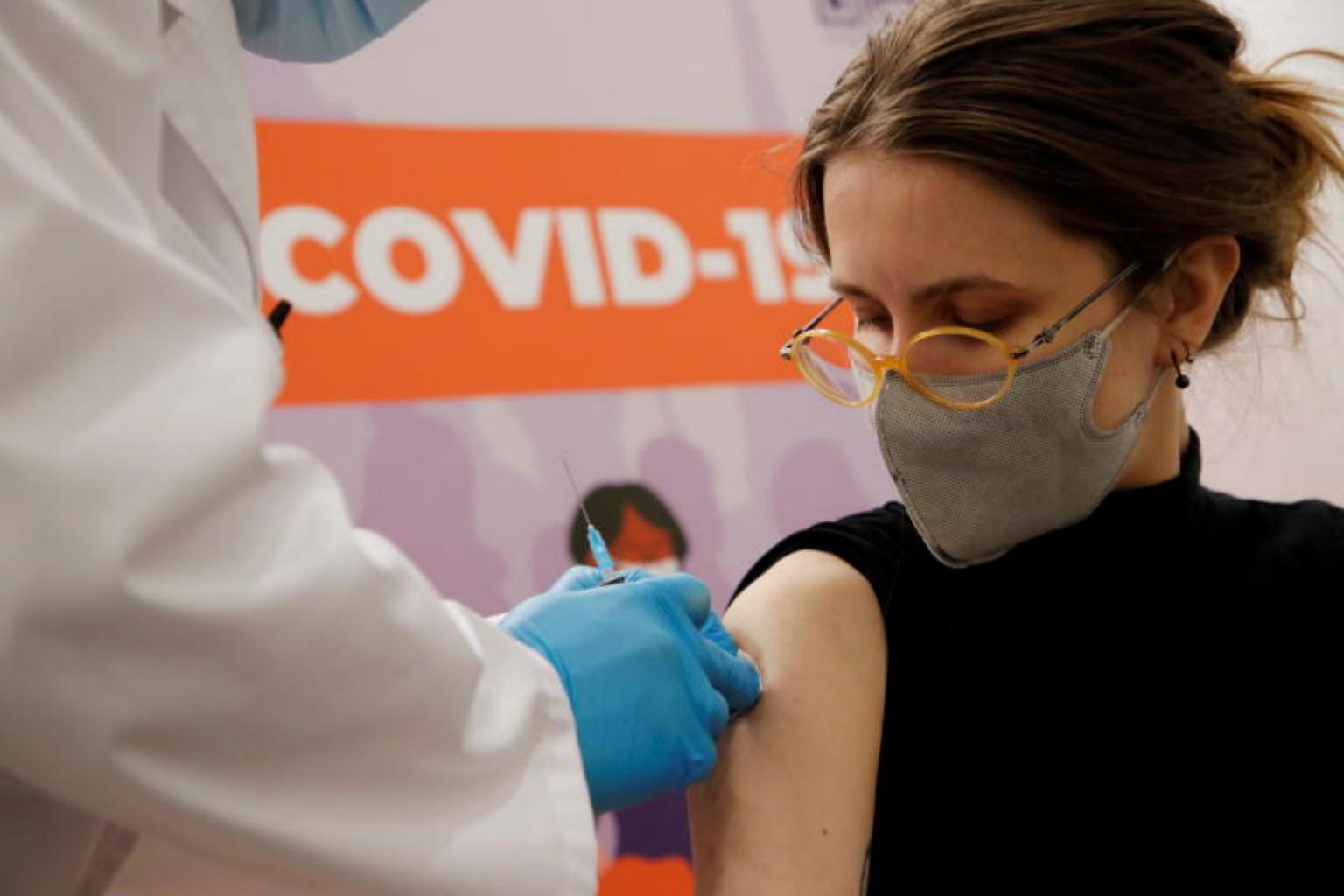Russians reject vaccines as Kremlin fears third wave of Covid-19
Sign up now: Get ST's newsletters delivered to your inbox

President Vladimir Putin has touted Russia's Sputnik V vaccine as a world leader.
PHOTO: REUTERS
Follow topic:
MOSCOW (BLOOMBERG) - Facing a rising wave of Covid-19 infections and a vaccination rate that isn't keeping up, the Kremlin is trying to contain the epidemic without alarming Russians. Even insiders worry it won't succeed.
Unofficial government statistics show the third wave has begun, according to two officials with knowledge of the situation, who asked not to be identified in order to speak candidly. Months of upbeat assessments from the Kremlin that the situation is under control have depressed demand for vaccines, as much of the population no longer fears the virus, the officials said.
Moscow's seven-day average of new infections is at the highest since January and it's adding cases faster than the UK, which has more than five times the population. The national total has stalled at around 9,000 new daily cases, down from nearly 30,000 in December.
Russia is publicly projecting confidence over its handling of the pandemic after President Vladimir Putin rejected a second lockdown in favor of prioritizing the economy when infections surged last year, in contrast to many European leaders. While the economy is rebounding, it has come at the cost of one of the world's highest death tolls.
The government continues to reject new domestic restrictions, though it recently barred travel to some popular tourist destinations including Turkey to reduce risks from imported strains.
Putin on Friday ordered weekdays made non-working between Russia's May 1 and May 9 holidays after officials said it would help reduce the spread of the virus by curbing travel.
"The new trend points to the situation possibly becoming more difficult," Anna Popova, head of Russia's public health watchdog, told the president.
Persuading Russians to take one of three domestic vaccines developed against Covid-19 is proving a harder task amid ingrained public skepticism toward officials. Moscow has resorted to offering gift cards worth 1,000 rubles (S$17) to motivate people aged over 60 to get their shots.
About two-thirds of Russians say they don't want to have the vaccine, said Denis Volkov, an analyst at the independent Levada Center pollster. "Many people say, 'why should I get a vaccine if the state doesn't force me to?'" he said.
Vaccination centers operate at shopping malls in the capital to encourage people to get the free shots, including at GUM on Red Square.
"There were lines only during the first few days," said Svetlana Reshetina, an administrator at the center. "I haven't gotten vaccinated myself. I don't trust it yet." Eva Avenel, 47, said she traveled from a Moscow suburb to be vaccinated after learning that Putin had his shot last month. "My friends kept trying to talk me out of it, saying it was harmful," but she trusts Putin and "if he's done it, then so have I," she said.
Putin has touted Russia's Sputnik V vaccine as a world leader, though domestic uptake lags and only about 8 per cent of the population has received a dose.
Vaccination rates are improving and some 12.1 million people have had a first shot, Deputy Prime Minister Tatyana Golikova said Tuesday.
Russia needs 69 million people with antibodies either from vaccines or through recovery from illness to achieve herd immunity, according to Golikova. Putin has called for that threshold to be reached by the fall.
There's little help from many Russian physicians, who "don't have enough information about the vaccines and have a high level of distrust in them," said Evelina Zakamskaya, editor-in-chief of Russia's Doctor television station. "Very often patients make their decisions based on doctors' anti-recommendations."

